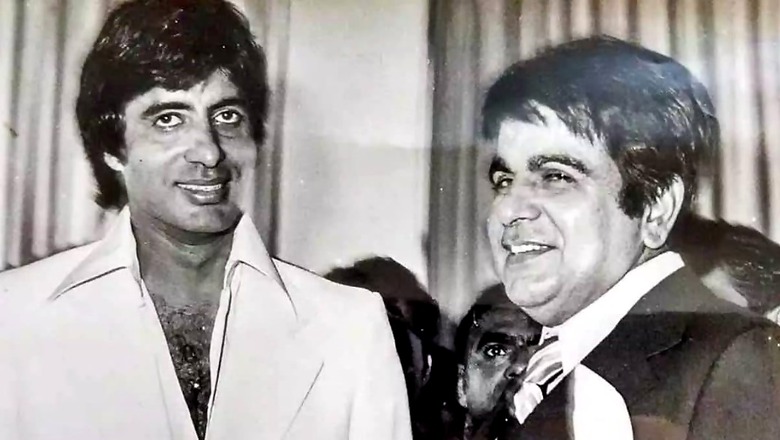
views
In the 1990s, Amitabh Bachchan shared his thoughts on how the nature of stardom in Indian cinema had evolved over the decades. Reflecting on his early experiences, he recalled a time when he witnessed the undeniable magnetism of actors like Dilip Kumar and Kamini Kaushal while growing up in Uttar Pradesh. During a discussion with the late Rajesh Khanna, featured in Movie magazine, Bachchan hinted that the era of iconic, larger-than-life movie stars might be fading.
He spoke of an era when the “mystique of cinema and its heroes still existed.” Acknowledging his own decreasing popularity, he pointed out the changing attitudes towards film stars. “I’ll give you an example of how times have changed. As a schoolboy, I was in Allahabad when Kamini Kaushal and Dilip saheb were shooting for Shaheed. The crowd almost overturned the train, and the thing that I still remember is, that it was the talk of the town, that the glass windows of the air-conditioned coach, in which Kamini Kaushal was present, broke. I am talking about late 40s early 50s. That kind of mystique about film stars doesn’t exist anymore,” he remarked.
In the same conversation, when asked whether they believed any actor could attain similar stardom in the years to come, Bachchan offered his view: “I don’t believe in those epithets of superstars. Anil Kapoor, Sunny Deol and Jackie are ruling the roost already. I even have to watch some of the newcomers.”
Rajesh Khanna shared his own thoughts, reflecting on the unique position Bachchan had held in the industry. “You were No. 1 to 10, the next one was No. 11. Before that there was only Rajesh Khanna. I have nothing against the juniors, but they aren’t superstar material at all. They are easily replaceable. Today, a filmmaker says, ‘Jackie Shroff ki date nahin mili hai to kisi aur ko le lo.’ Whereas, they say, ‘Agar Amitabh Bachchan nahi milta hai, we will wait, or will not make the subject.”
Dilip Kumar, born Mohammed Yusuf Khan on December 11, 1922, in Peshawar (now in Pakistan), was an iconic figure in Indian cinema, known as the “Tragedy King” for his deeply emotional portrayals. With a career spanning over five decades, he became one of Bollywood’s most revered actors. His debut came with Jwar Bhata (1944), but it was his performances in films like Andaz (1949), Devdas (1955), Mughal-e-Azam (1960), and Ganga Jamuna (1961) that solidified his place in Indian film history.
Renowned for his method acting, Dilip Kumar brought a new depth to the industry, inspiring generations of actors. His nuanced approach to roles, particularly in dramatic narratives, earned him the title of the first true superstar of Hindi cinema. Over his illustrious career, he won numerous awards, including eight Filmfare Awards for Best Actor and was honored with the Padma Bhushan, Padma Vibhushan, and the Dadasaheb Phalke Award for his contribution to Indian cinema.
Dilip Kumar married actress Saira Banu in 1966, and their partnership became a legendary love story within the industry. He remained a respected figure in Indian culture and cinema until his passing on July 7, 2021, at the age of 98. His legacy as a trailblazer in Bollywood and his enduring impact on the art of acting continue to influence the Indian film industry.

















Comments
0 comment